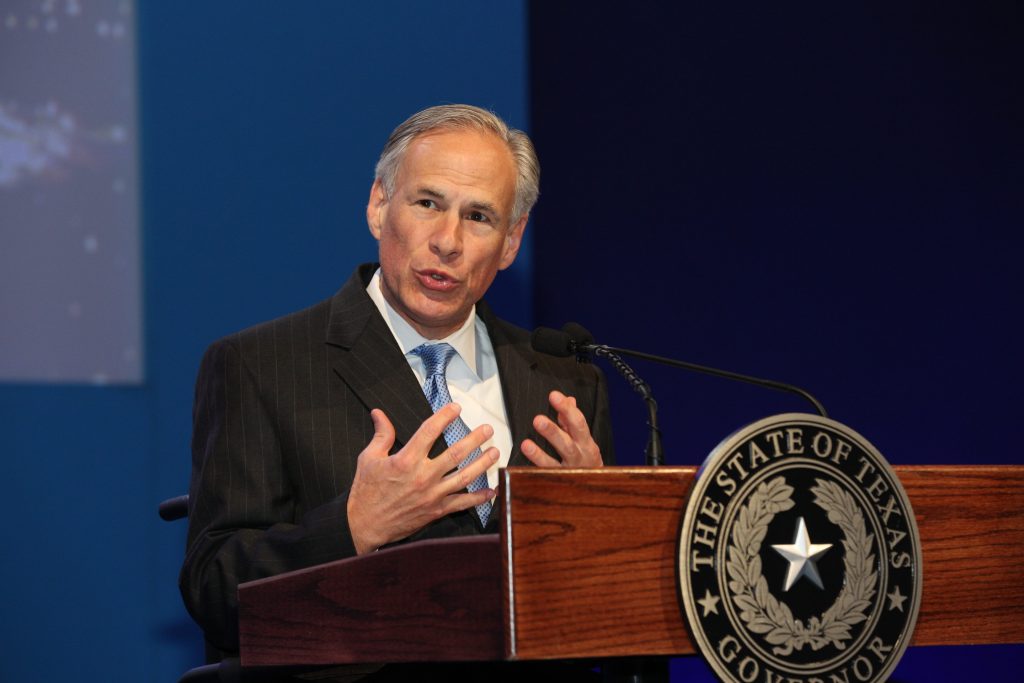By Allen R. Gray
NDG Contributing Writer
If one had to define the Republican agenda, it would be to save Texas from total disintegration at the hands of the Democrats. This election year, would-be saviors have flooded the field of those grappling for the state’s most coveted seat. There is a total of 22 Democratic and Republican Texans (that includes three Green and Libertarian convention candidates) vying for the position of Texas governor, plus six others that either withdrew or were disqualified.
A Texas gubernatorial candidate must receive more that 50% of the vote to automatically advance to the November 8, 2022 general election. In the event of a tie the top two vote getters must advance to a primary runoff.
Despite Texas Governor Greg Abbott touting his claims of unprecedented goods works, his Republican comrades have flooded the field in hopes of usurping the incumbent in the upcoming primary on March 1, 2022. Currently there are no less than eight candidates hoping to represent the seat that the Republicans have held since 1995, when George W. Bush was able to unseat Democratic Governor Ann Richards.

Of those eight Republican hopefuls, only three are considered credible; and those three are making this one of the most competitive Republican primaries in recent years. Allen Bernard West is a retired Army Lieutenant Colonel who served as chairman of the Republican Party of Texas in 2020, until he decided to run for governor. Real estate developer Don Blaine Huffines was a member of the Texas Senate from 2015 until losing reelection in 2019. Incumbent Greg Abbott was first elected governor in 2014 and was re-elected in 2018. The last incumbent Texas governor to lose his party’s nomination was Democratic Gov. Dolph Briscoe, who relinquished the post to then-Attorney General John Hill in 1978.
Albeit Texas vaunts its status as one of the most solidly Republican states in the nation, historically Texas has been dominated by Democrats since the state’s inception. In 1874, the first elected Texas governor was a democrat. All subsequent Texas governors were democrats…that is until 1979 when a stereotypical Texas oilman named Bill Clements became the very first Republican governor of Texas.
Since Clements’ unlikely victory, Republicans have gone on to win every Texas gubernatorial election from 1994 to 2018 by an average margin of 16.9 percentage points. Although, in the 2018 gubernatorial race Abbott defeated Democratic rival Lupe Valdez by a margin of 13.3% percentage points.
Hoping to end the Republicans’ recent winning streak are four ambitious and determined Democrats, among them are Inocencio Barrientez, Michael Cooper, and Joy Diaz.
Nevertheless, there is only one Democratic candidate that poses a real challenge to Abbott. That candidate is Robert Francis “Beto” O’Rourke, who served as the U.S. Representative for Texas’s 16th Congressional District from 2013 to 2019. O’Rourke is recovering from failed attempts at the U.S. Senate in 2018, and he conceded the Democratic presidential nomination in 2020.
A multitude of candidates notwithstanding, the race for Texas governor essentially boils down to two candidates, the Republican incumbent Greg Abbott and a near cult favorite Democrat Beto O’Rourke.
Given Texas’ voting history, current voting trends, and recent polls, this race could potentially be one of the closest gubernatorial elections held in Texas.
While Abbott claims to be the only one who could possibly save Texas from the liberal thinking Democrats and hordes of immigrants, O’Rourke’s mission is to save Texas from Abbott. In O’Rourke’s view, the current Texas leadership has failed its citizens; and he says he’s running for governor to get the state back on track.
Other than the candidates’ political fodder the only other true insight one might gain on who the eventual winner will be is found in the results of numerous opinion polls of registered voters.
A December 2-6, 2021 Quinnipiac poll of 1,224 registered Texas voters revealed:
• Abbott held a 15-point edge over O’Rourke at 52 percent to 37 percent
• Ninety percent of Republicans say they back Abbott
• Eighty-seven percent of Democrats say they back O’Rourke
• Thirty-six percent of voters say they have a favorable opinion of O’Rourke, 47 percent have an unfavorable opinion of him
• Fifty-two percent of voters say they have a favorable opinion of Abbott, and 42 percent have an unfavorable opinion of the incumbent
• Fifty-three percent of voters say they approve of Abbott’s job performance, and 41 percent disapprove. In September 2021, 44 percent approved, and 47 percent disapproved.
The polls withstanding, O’Rourke only announced his gubernatorial candidacy a little over two months ago, so with the election still 11 months away O’Rourke has more than enough time to change the hearts and minds of Texas voters.
If fundraising is any indicator, O’Rourke seems to be in good standing. In only his first month of fundraising, O’Rourke was able to bring in $2 million in the first 24 hours after announcing his campaign. In a state the brand of Texas, fundraising is, perhaps, the biggest indicator of a potential victory.
When one chooses to set aside thoughts of party affiliation, the Great Wall of Texas, and mutant mask mandates, one is left with those qualities Texas voters want most in their governor. Texas voters want a governor who shares their values, and they want someone who can manage the state during these extremely complex and confusing times.








